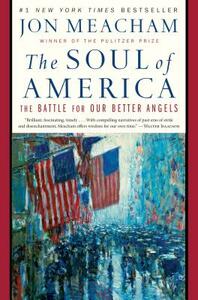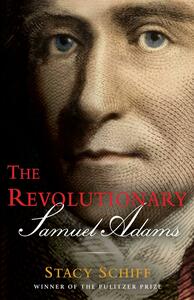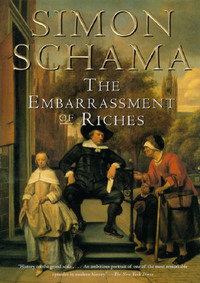Take a photo of a barcode or cover
manish25's Reviews (114)
adventurous
emotional
informative
inspiring
reflective
fast-paced
David McCullough’s The Wright Brothers is everything I’ve come to expect from him—and more. With his trademark clarity, warmth, and meticulous research, McCullough once again delivers a biography that soars. This isn't just a story about inventors tinkering with engines; it's about vision, obsession, quiet brilliance, and grit—and he captures it all with the kind of narrative grace that makes every page a pleasure.
What makes McCullough truly unmatched is his ability to breathe life into history. In his hands, Orville and Wilbur Wright are not static figures on a timeline—they're complex, fascinating men whose journey from a bicycle shop in Dayton, Ohio, to the sands of Kitty Hawk is nothing short of extraordinary. McCullough paints their world so vividly that you can feel the wind of the dunes, the clatter of tools, and the relentless drive behind their quiet demeanor.
This book is a celebration of innovation and perseverance, but it’s also a masterclass in storytelling. Every time I pick up a McCullough book, I know I’m in the hands of a master historian who respects his subjects as much as he respects his readers. The Wright Brothers is no exception—once again, he delivers a powerful, deeply human portrait that stays with you long after you’ve turned the last page.
If you love history told with heart, precision, and elegance, McCullough is the gold standard. I love reading every one of his books, and The Wright Brothers earns its place among the very best.
informative
fast-paced
Catherine Drinker Bowen’s Miracle at Philadelphia is a richly detailed and engaging account of the Constitutional Convention of 1787. Bowen brings to life the political tensions, philosophical debates, and remarkable personalities that shaped the U.S. Constitution, all with a narrative flair that makes complex history accessible and compelling.
One of the aspects I particularly enjoyed was her vivid portrayal of the 13 colonies and their varying circumstances at the time of the convention. Bowen masterfully illustrates the economic, political, and cultural differences among the states, giving crucial context to the often-fractious debates that took place in Philadelphia. It was fascinating to see how each state’s unique position influenced its delegates’ stances on key issues like representation and federal power.
Equally compelling was her treatment of the ratification process, especially the grassroots resistance led by Anti-Federalists. The descriptions of public protests and political pamphleteering during statewide ratification debates added a much-needed dimension to the story, showing that the Constitution was not universally welcomed and that its path to adoption was anything but smooth.
The only drawback—and the reason this isn't a full 5-star review—is the sheer volume of names and details about the convention’s attendees. While many of these figures were essential to the process, keeping track of all of them at times felt overwhelming and occasionally detracted from the narrative flow. A more streamlined presentation or reference guide would have helped.
That said, Miracle at Philadelphia is an outstanding work of historical storytelling. Bowen’s respect for the framers and her understanding of the stakes involved give the book a sense of drama and significance that’s often missing from political history. Highly recommended for anyone interested in the birth of the American republic.
adventurous
informative
tense
slow-paced
Winston Churchill’s abridged memoirs of the Second World War are, without question, a towering literary and historical achievement. His prose is commanding, his insights into strategy sharp, and his presence throughout the war years undeniably central. As a firsthand account from one of the most pivotal figures of the conflict, this volume offers a rare window into the high-level decisions, frustrations, and hopes that shaped the war’s course—particularly from a British perspective.
But it’s precisely this strength that also becomes a limitation. The memoir is deeply—and understandably—told through British eyes, specifically Churchill’s own. Yet for a work with such sweeping ambitions, it sometimes narrows when it ought to expand. The war’s final stages, including the conclusion of hostilities and the Nuremberg Trials, are disappointingly underexplored. Given the monumental significance of those events, the lack of depth in this area feels like a missed opportunity to provide closure to the narrative or broader historical context.
Moreover, Churchill's account often leans toward a global view of the war, but paradoxically, this dilutes Britain's role. By trying to tell the whole story, Britain sometimes fades oddly into the background—even though it’s the lens through which the war is presented.
There’s also little attention paid to the contributions of the Dominions or the colonies. Canada, Australia, New Zealand, South Africa—and especially India—are scarcely acknowledged, which is frustrating given how much blood and resources they committed to the Allied cause. It leaves the impression that Britain stood largely alone, when in reality, it was an imperial effort.
There’s also little attention paid to the contributions of the Dominions or the colonies. Canada, Australia, New Zealand, South Africa—and especially India—are scarcely acknowledged, which is frustrating given how much blood and resources they committed to the Allied cause. It leaves the impression that Britain stood largely alone, when in reality, it was an imperial effort.
All in all, The Second World War is a valuable read, particularly for those seeking insight into wartime leadership and decision-making. But readers hoping for a more inclusive or conclusive historical account may find it wanting. Churchill gives us a gripping narrative—but not the full picture.
informative
fast-paced
Jon Meacham’s The Soul of America: The Battle for Our Better Angels is a timely and earnest attempt to contextualize America's current political and cultural turbulence through the lens of its past. As always, Meacham brings his signature sense of optimism and deep respect for the arc of American democracy. However, compared to his other works like Destiny and Power or Thomas Jefferson: The Art of Power, The Soul of America feels surprisingly underwhelming.
The book’s central premise—that America has endured dark times before and emerged stronger—is both comforting and historically grounded. Meacham walks readers through critical inflection points such as the Civil War, the Red Scare, the civil rights movement, and more recent polarization, aiming to show that resilience and moral clarity eventually prevail. It’s a noble message, especially during moments of national doubt.
Yet, while the subject matter is vital, the delivery lacks the narrative energy that typically defines Meacham’s work. The prose often feels detached, and the book leans more heavily on summarizing events than offering fresh insight. Readers expecting the rich character studies or the behind-the-scenes depth that made his biographies so compelling may be left wanting. The structure also feels disjointed at times. Meacham jumps from era to era with minimal transition, and although each chapter holds merit individually, the cumulative effect is somewhat repetitive. The inspirational tone—while important—starts to feel a bit one-note over the course of the book.
In the end, The Soul of America is a well-intentioned and thoughtful read, but one that falls short of Meacham’s usual storytelling standard. It’s informative and reassuring, but also, unfortunately, a little boring—especially for those familiar with his more dynamic, character-driven narratives. A decent read, but not his best.
adventurous
dark
hopeful
informative
reflective
sad
tense
medium-paced
Ever since I watched Saving Private Ryan as a kid, I’ve been fascinated—haunted even—by the events of June 6, 1944. That film planted a seed that eventually led me to dig deeper into the real story behind the Normandy invasion. My journey to Stephen Ambrose as an author actually started with his earlier work, Undaunted Courage, a gripping account of the Lewis and Clark expedition that left a lasting impression on me. That book showcased Ambrose’s storytelling strengths and led me to explore more of his catalog—D-Day being the natural next step, despite the controversies that have surrounded some of his other writings.
With D-Day, Ambrose delivers what many consider one of the definitive accounts of the Allied invasion of Normandy. His narrative is at its best when he dives into first-hand accounts, capturing the chaos, fear, and courage of the soldiers on the ground. He balances the large-scale strategic view with intensely personal stories, offering a boots-on-the-ground perspective that’s both moving and informative. In many ways, the book felt like an extension of the emotional weight I felt as a kid watching the opening scene of Saving Private Ryan—only this time, grounded in oral histories and detailed military research.
That said, this isn’t a perfect book. My biggest critique—and the reason I’m giving it 4 stars instead of 5—is its American-centric focus. While Ambrose does mention the contributions of British and Canadian forces, their roles often feel secondary to the U.S. narrative. Given the scope of D-Day and the truly multinational effort it required, I found myself wishing for a deeper dive into the UK and Canadian sectors of the beach, their planning, and their battlefield experiences. It’s understandable that Ambrose, as an American historian, would gravitate toward the American point of view, but a more balanced treatment would have added depth and a broader sense of context to the overall story.
Still, D-Day remains a powerful and important work. It succeeds in making history feel immediate and human, and it's a must-read for anyone interested in World War II. Just approach it knowing that it tells one part of a much larger story—an unforgettable part, but not the whole.
adventurous
informative
inspiring
fast-paced
An Overlooked Gem That Brings Philadelphia’s Soul to Life
I picked up Raising Philadelphia: The Making of America's First Great City, 1750-1775 by Justin McHenry for just $5 brand new—an absolute steal for a book this brilliant. My only regret? Not buying it sooner.
Unlike so many history books that focus solely on the timeline of a city, McHenry does something far more captivating: he shines a light on the people who built Philadelphia—not just the founding fathers, but the laborers, entrepreneurs, artists, and agitators who turned it into a living, breathing force of culture and revolution. Every page pulses with the energy of individuals who shaped a city into a symbol.
The detail is impeccable, the storytelling engrossing, and the human focus gives this book a richness and immediacy that others often miss. It’s not just about what happened in Philadelphia—it’s about who made it happen, and why it mattered.
It’s frankly unbelievable that Raising Philadelphia isn’t getting the recognition it deserves. I’m frankly surprised more people aren’t reviewing this book. This book should be required reading for anyone who loves American history, urban studies, or stories of people-powered change. More people need to read this. Period.
Don’t sleep on it—if you find a copy, grab it. And then tell everyone you know. And if Justin McHenry, the author is seeing this- Thank you. This is a piece of art.
adventurous
informative
tense
medium-paced
A.J. Langguth’s Patriots offers a detailed and ambitious narrative of the American Revolution, weaving together a vast array of historical figures and events into a cohesive story. For readers interested in the political and personal intricacies of the Revolutionary era, this book delivers a panoramic view that is both informative and engaging—eventually.
The book does require some patience. In its early chapters, the pacing is deliberate, almost methodical, as Langguth introduces a wide cast of characters and lays the foundation for the coming conflict. At times, this initial section can feel a bit dense and sluggish, especially for those looking for immediate narrative momentum.
However, once the groundwork is in place, the story gains clarity and intensity. The latter half of the book moves with increasing urgency, pulling readers into the drama and chaos of revolution with vivid scenes and sharply drawn personalities. Langguth’s journalistic background is evident in his crisp prose and eye for detail, and he excels at highlighting the human dimensions of historical events.
While not without its flaws—namely its slow buildup and occasional difficulty in managing such a large scope—Patriots ultimately rewards the committed reader with a compelling and illuminating account of America’s fight for independence.
adventurous
emotional
hopeful
informative
inspiring
reflective
relaxing
tense
fast-paced
There’s a reason why Mr. Meacham’s works are the gold standard of historical biographies. Jon Meacham’s Franklin and Winston: An Intimate Portrait of an Epic Friendship is a beautifully written, deeply researched exploration of one of the most consequential political partnerships in modern history. Meacham brings to life the complex, personal, and strategic relationship between Franklin D. Roosevelt and Winston Churchill with nuance, warmth, and a historian’s keen eye for detail.
The book goes beyond the battlefield strategies and wartime policies to reveal the human connection between these two towering figures. Through letters, diaries, and diplomatic correspondence, Meacham uncovers how trust, humor, admiration, and occasional tension shaped their alliance and, ultimately, the outcome of World War II.
What makes Franklin and Winston stand out is Meacham’s storytelling. He captures both the grand sweep of history and the intimate moments—Churchill’s late-night musings, Roosevelt’s carefully managed public persona, and their shared belief in the democratic world’s survival. The prose is elegant but accessible, making the book as enjoyable as it is informative.
This is not just a dual biography—it’s a study in leadership, friendship, and the moral weight of decision-making in times of crisis. For readers of history, politics, or biography, Franklin and Winston is essential and unforgettable.
adventurous
informative
inspiring
fast-paced
Stacy Schiff's The Revolutionary: Samuel Adams offers a nuanced portrait of a figure often overshadowed in American history. While the biography provides valuable insights into Adams's pivotal role in the American Revolution, it leaves some aspects of his life underexplored.
Schiff's narrative excels in highlighting Adams's strategic brilliance and his instrumental role in galvanizing colonial resistance. The book delves into his clandestine activities, showcasing his ability to maneuver within the political landscape of the time. However, the focus on his revolutionary endeavors means that his personal life, including his childhood, family dynamics, and later years, receive less attention.
Having previously read David McCullough's John Adams, which provides a comprehensive look into the life of Samuel's cousin, I found myself yearning for a deeper exploration of Samuel Adams's personal experiences. McCullough's work offers a rich tapestry of Adams's life, from his early years to his presidency, providing readers with a holistic understanding of his character and motivations. In contrast, Schiff's biography, while informative, leaves certain gaps in the personal narrative of Samuel Adams.
Schiff's narrative excels in highlighting Adams's strategic brilliance and his instrumental role in galvanizing colonial resistance. The book delves into his clandestine activities, showcasing his ability to maneuver within the political landscape of the time. However, the focus on his revolutionary endeavors means that his personal life, including his childhood, family dynamics, and later years, receive less attention.
Having previously read David McCullough's John Adams, which provides a comprehensive look into the life of Samuel's cousin, I found myself yearning for a deeper exploration of Samuel Adams's personal experiences. McCullough's work offers a rich tapestry of Adams's life, from his early years to his presidency, providing readers with a holistic understanding of his character and motivations. In contrast, Schiff's biography, while informative, leaves certain gaps in the personal narrative of Samuel Adams.
In conclusion, The Revolutionary serves as a commendable introduction to Samuel Adams's political legacy but falls short of delivering a complete picture of his life. Readers seeking a more intimate portrayal of Adams may find McCullough's biography a more fulfilling read.
informative
slow-paced
I rarely leave bad reviews, but The Embarrassment of Riches by Simon Schama is simply just that- a major embarrassment. This is, without a doubt, the only book I didn’t finish this year—and I tried. I really did. But it’s just so academic, dense, and hard to get into. Schama jumps from one topic to another with little cohesion, making it nearly impossible to keep track of the narrative or even understand what
the central point is supposed to be.
the central point is supposed to be.
I bought this thinking I’d get an insightful, engaging look into Dutch culture and history. Instead, I ended up with a frustrating, overly elaborate lecture that seems more concerned with showing off than actually informing or entertaining. The writing is needlessly complex, and the structure feels like a stream of tangents rather than a coherent book.
I’m giving it one star, and the only reason it gets that is out of respect for the sheer amount of research and effort the author clearly put in. But in terms of readability and enjoyment? I seriously regret spending money on this. keep in mind, it has a WEALTH of information but the language is needlessly very academic.









